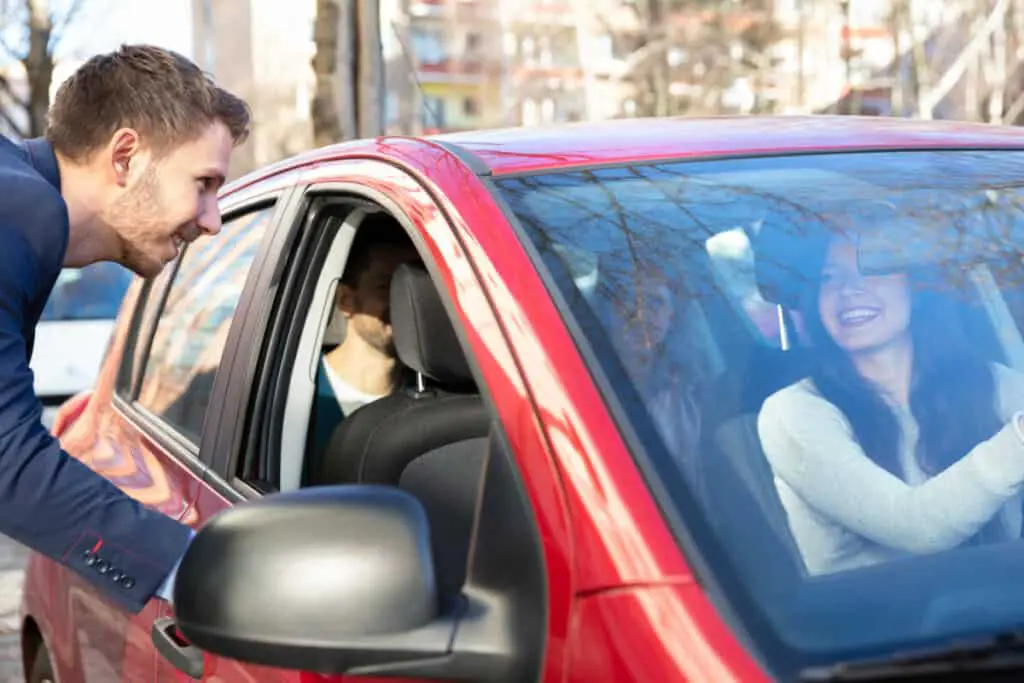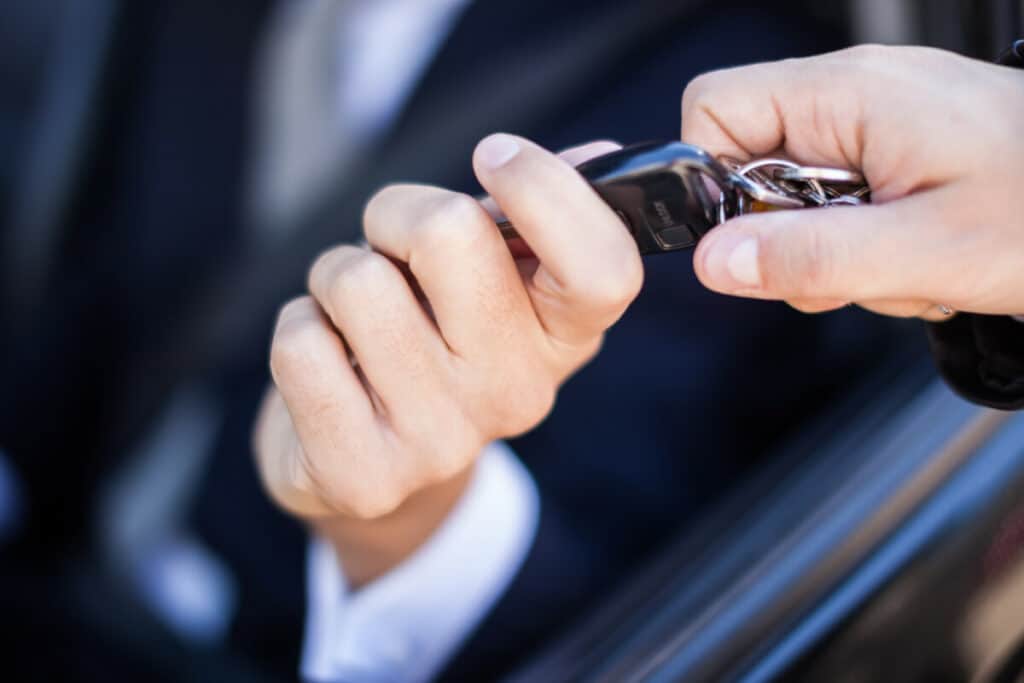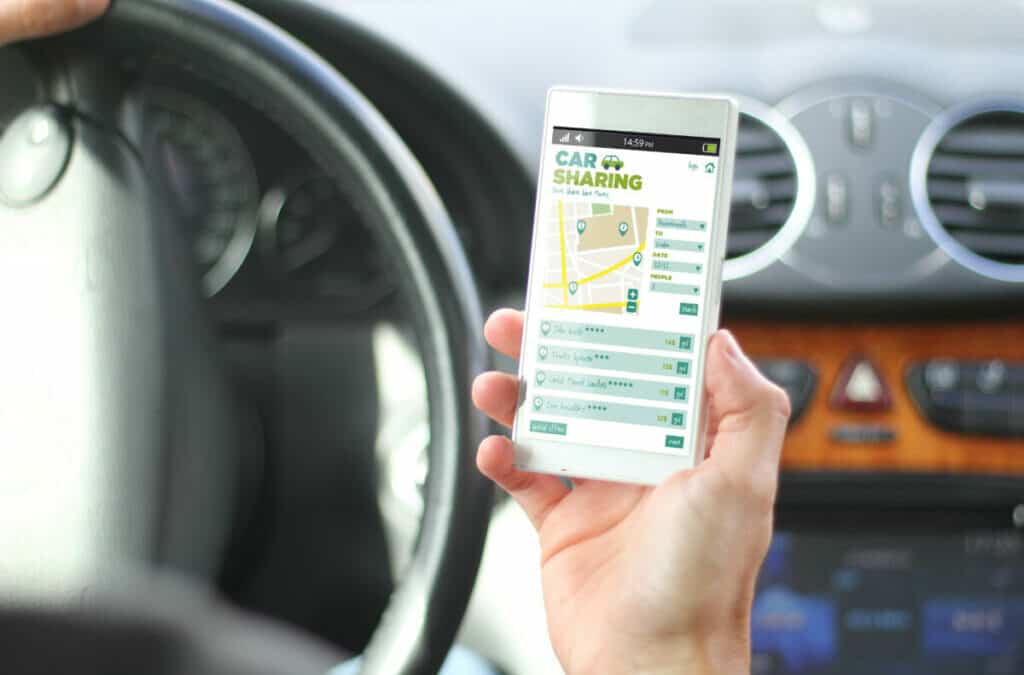This post contains affiliate links.
Car sharing has grown in popularity over recent years, and some people even find it more convenient than rental cars. This is because it's usually cheaper and an easier process. Not only this, but it doesn't involve as many costs as renting cars, like deposits and insurance at times.
Car sharing is bought hourly or daily for the trip and the gas used. After signing up with the car share company, it is not always required to pay a deposit fee. If a deposit is required, one still needs to pay for the trip and gas to get the car share on top of the deposit.
Keep reading to know everything important about car sharing fees, deposits, and how it works.
what is car sharing, and How Does it Work?

Car sharing is a shorter-term car rental where you would only pay for what you use. It is different from using rental car companies because you are reserving a car owned by a real person in the area you're visiting. These people rent out their cars peer-to-peer versus having many cars that car rental companies own.
Most of the time, car sharing works through an app. The renter can sign up to be a member of that app and choose the car they want. They pick up the car, drive it wherever they need it while paying for their own gas and then return it to the owner.
Paying for the car requires an hourly rate or sometimes a daily rate. For example, most rates range from $8 to $20 per hour or day (Source).
Can You Get A Car Sharing Without A Deposit?
You can get a car share without a deposit; you just have to find the right company that doesn't charge for one. Some car-sharing companies, significantly smaller or private, don't charge a deposit fee; you can just pay for the trip and gas. However, many car sharers still ask for a security deposit.
A security deposit may be required for your trip, and the costs of this can vary. You usually would pay the security deposit at the same time you sign up for the trip, which is refunded within a certain number of days/hours after your trip.
The security deposit cost is different based on the type of car, length of trip, and type of trip. With some car rental companies, signing up initially and submitting your personal insurance information discounts your deposit price. This is because most car-sharing companies have you rely on your own insurance.
What fees do I pay when car sharing?
The rates and fees can be different, and it all depends on the car share company. Most of them don't require a membership fee, but this can look like a one-time $5 fee, a monthly fee of around $7, or a yearly fee that's $70. There are options for car shares that you can sign up for free or ones where you might have to pay.
The main fee that will be required in every car share is the gas you use and the cost of the trip, which can be daily or hourly. Other than these fees, which are determined by the company and type of car, there could be added transactions you need to pay for, like a deposit or membership.
How Is Insurance Covered When Car Sharing?

Insurance Coverage for car renters:
Usually, your personal insurance will work for cars that are rented through a car-sharing company. The cars from the company will charge the minimal level of coverage required by your state. That includes personal injury protection (PIP) and uninsured/underinsured motorist insurance for states where they are legally required.
Unless it's specifically mentioned in your policy, you will be protected by your own car insurance when you rent a car through car sharing. Most of the bigger peer-to-peer companies provide supplementary insurance that is then secondary to your personal coverage in case of a claim. Individuals who rent without their own insurance will receive primary coverage from that insurance.
Insurance Coverage for car owners:
People who own the cars and rent them out through car-sharing services need to have separate insurance that's provided by the company, and not just their personal one. A typical auto policy won't cover someone's car when it's used in a business like renting publicly, so owners can't rely on their personal insurance to provide protection when using it for car-sharing.
Because of this, the companies offer their own insurance that works only during the rental. The first one is a liability. Some big car-sharing companies have a $1 million liability policy for car owners. The second is collision and comprehensive, where the company pays for damage caused during rentals, which goes up to the maximum of the car's cash value.
Car owners should be cautious of what they sign up for because there are risks regarding insurance policies.
Why Car Share can be better for you than car rental
Here are some reasons why people recommend car sharing over renting or even owning cars:
- Some people suggest car sharing because you can save money regarding car payments, insurance, routine maintenance, and gas that you typically spend on owning a car.
- Car sharing decreases greenhouse gas emissions from fewer cars in traffic, more fuel-efficient and electric cars on the roads, more productive, efficient small cars, fewer automobile miles driven, less air pollution, and an opportunity for more urban green space.
- Unlike renting, you don't have to wait in line to rent a car. Car sharing allows you to drive when you want to.
- There are fewer restrictions in car sharing than in renting, like who is eligible to drive it or the hidden additional costs, for example.
- If you live in a well-established city, car-sharing programs are conveniently located near you.
- Car sharing can help decrease traffic and impact the number of cars on the road. Studies have found that one car-sharing car can replace up to 11 privately owned cars.
- You can enjoy all the benefits of different types of cars. You can pick out the car you want to drive and switch it up as often as you'd like.


